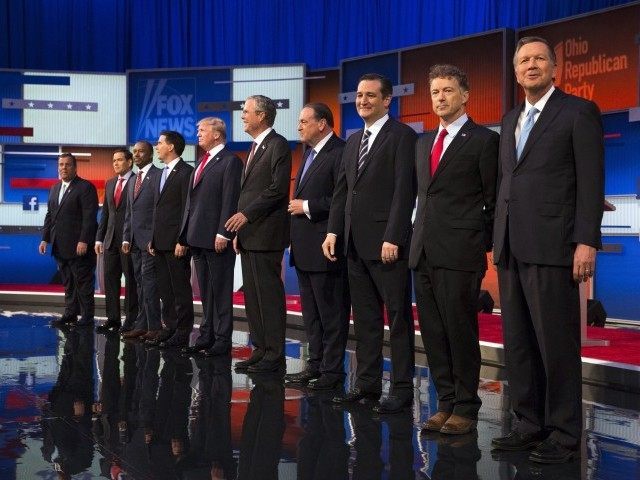
A new poll from CNN/ORC finds Donald Trump dominating likely caucus-goers in Iowa. Somewhat more surprising, though, is that retired neurosurgeon Ben Carson has surged into second place, edging out long-time Iowa frontrunner Wisconsin Gov. Scott Walker.
The poll, of more than 5oo caucus-goers, found Trump in first with 22 percent, followed by Carson with 14 percent. Walker dropped to third, with just 9 percent support.
Texas
followed with 8 percent. Businesswoman Carly Fiorina and former Arkansas Gov. Mike Huckabee were just behind Cruz with 7 percent each.
More establishment candidates including Florida
and Jeb Bush have faded to the back of the crowded field, with just 5 percent support each. They are tied with
from Kentucky. The other candidates have 3 percent or less.
The poll is the latest evidence that the the early innings of the 2016 are not strictly just a story about Donald Trump. The larger dynamic is that voters are rejecting any candidate who is seen as tied to the Washington Republican establishment.
Political pundits may try to dismiss the Trump surge as something unique to his nearly ubiquitous personality, but the rise of candidates including Carson, Fiorina, Cruz and, to some extent Walker, shows an eagerness by voters to break with anything that reeks of Washington or the establishment.
Trump’s edge with voters rests on their belief that he is the best candidate to tackle the economy, foreign policy and illegal immigration. Almost half of caucus-goers, 44 percent, say he is the candidate most likely to change the way Washington works.
Trump is weakest with voters who describe themselves as “very conservative.” Those voters, who historically make up a large share of the caucus, prefer Carson, at 25 percent, followed by Cruz and Walker, each with 15 percent, with Trump in third, with 12 percent support. Among evangelical Christians, though, Trump ties Carson for first, each with 18 percent. Cruz at 12 percent, Huckabee 11 and Walker 10.
The two groups, “very conservative” and evangelicals will likely make up around 60 percent of those attending a caucus.
A caucus operates very differently from a primary election. To be successful in a caucus, a candidate needs very energized supporters, who may have to devote an hour or more to the voting process.
This will give the edge to candidates who are clearly distinct from Republican leadership in Washington. Whether its Trump, Carson or Cruz on the right or Vermont
on the left, voters are fed-up with Washington.
This year is shaping up as the year of the outsider.
Via: Breitbart
Continue Reading....



